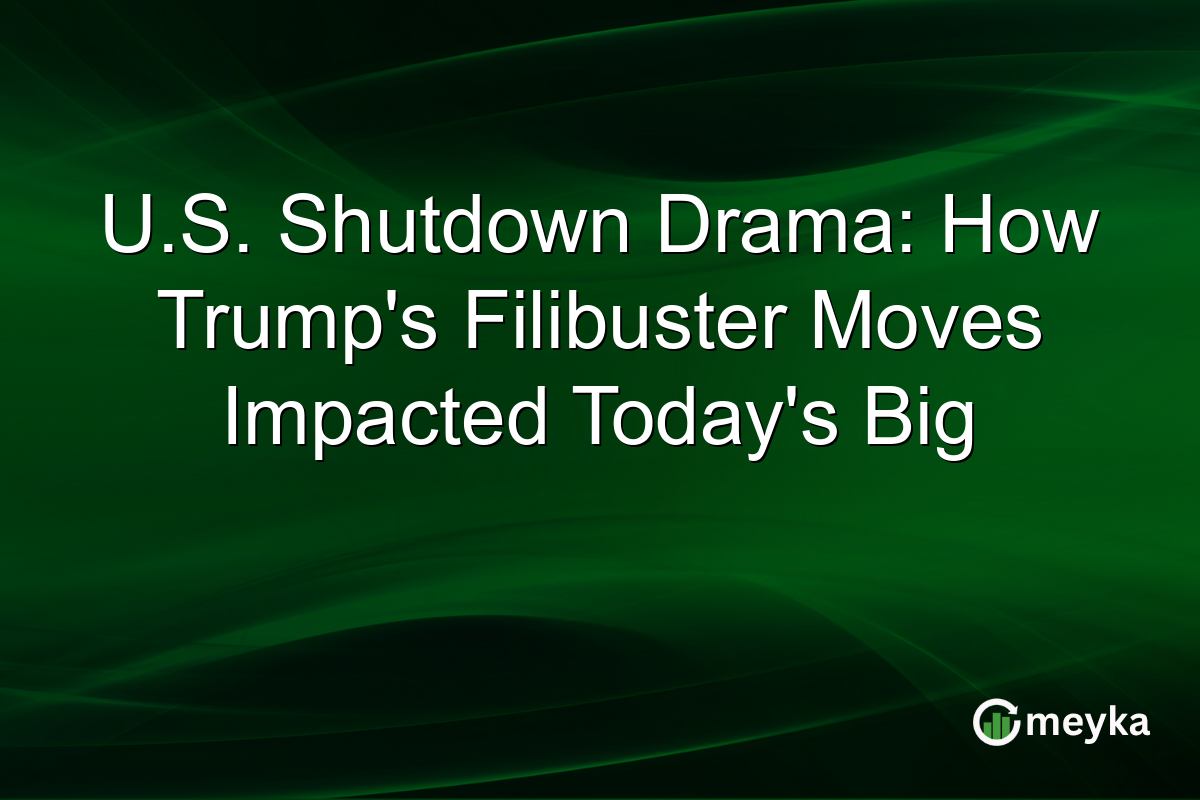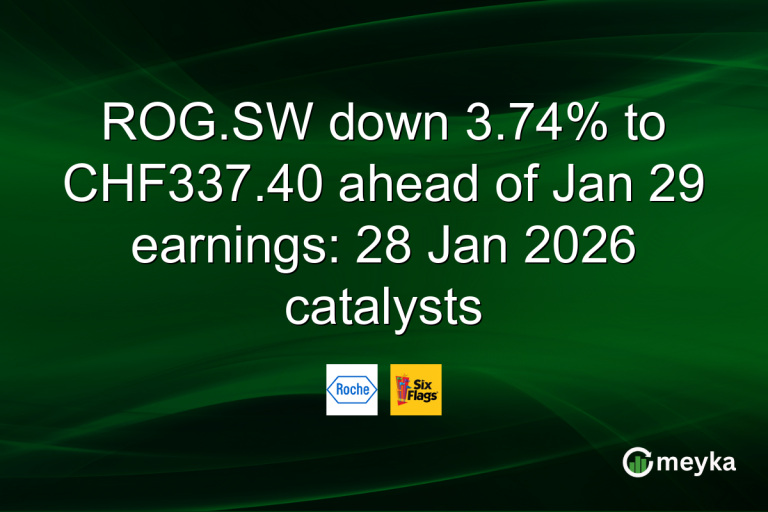U.S. Shutdown Drama: How Trump’s Filibuster Moves Impacted Today’s Big
The U.S. political landscape has been significantly shaped by former President Donald Trump’s calls to end the Senate filibuster. This movement has intensified discussions about government shutdowns and recent Democrat election wins. With these political shifts, Republicans find themselves pressured to devise new strategies. As legislative actions evolve, their economic repercussions could impact market sentiments.
Continue Reading on Meyka
This article is available in full on our main platform. Get access to complete analysis, stock insights, and more.
Read Full Article →





